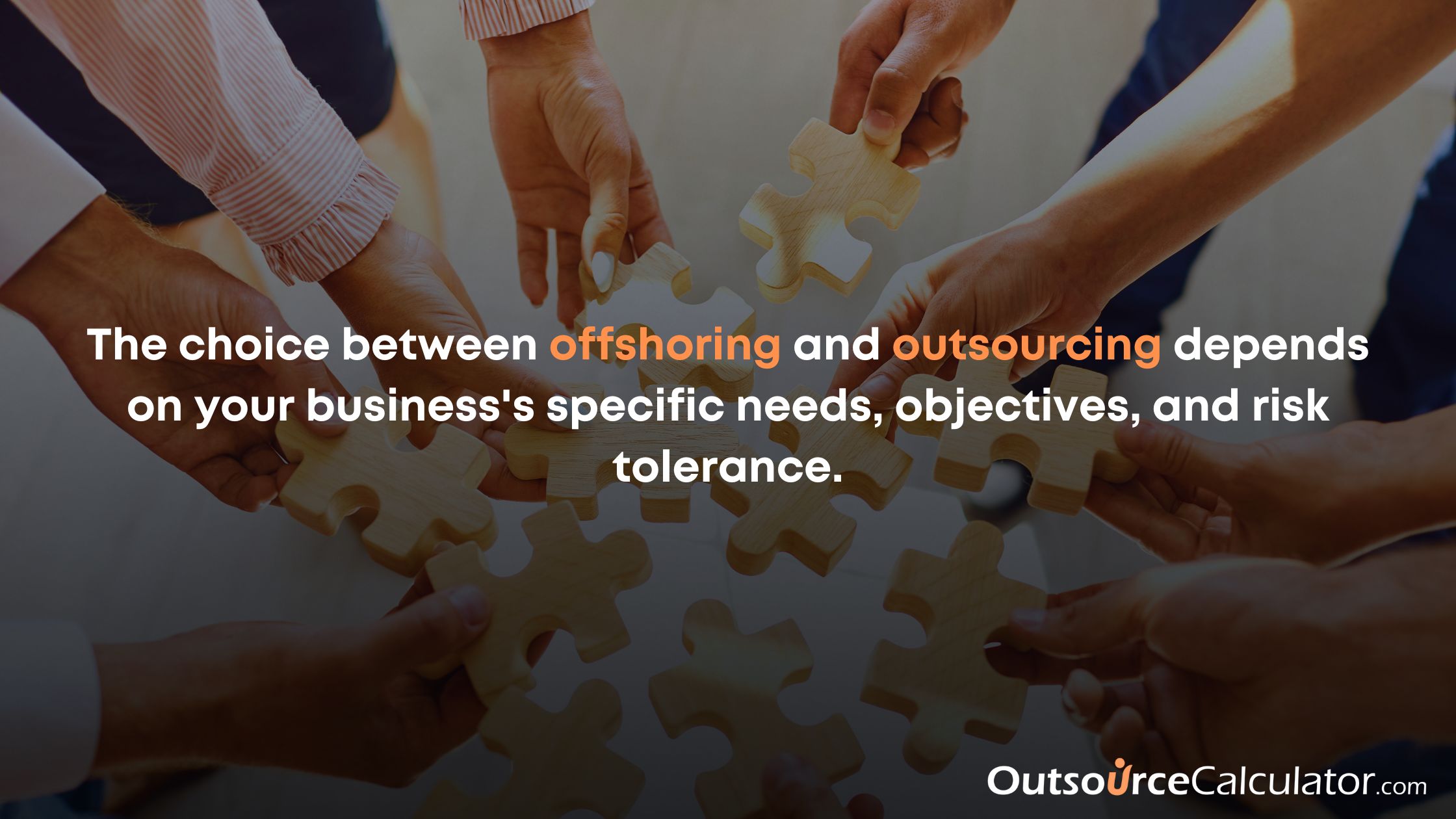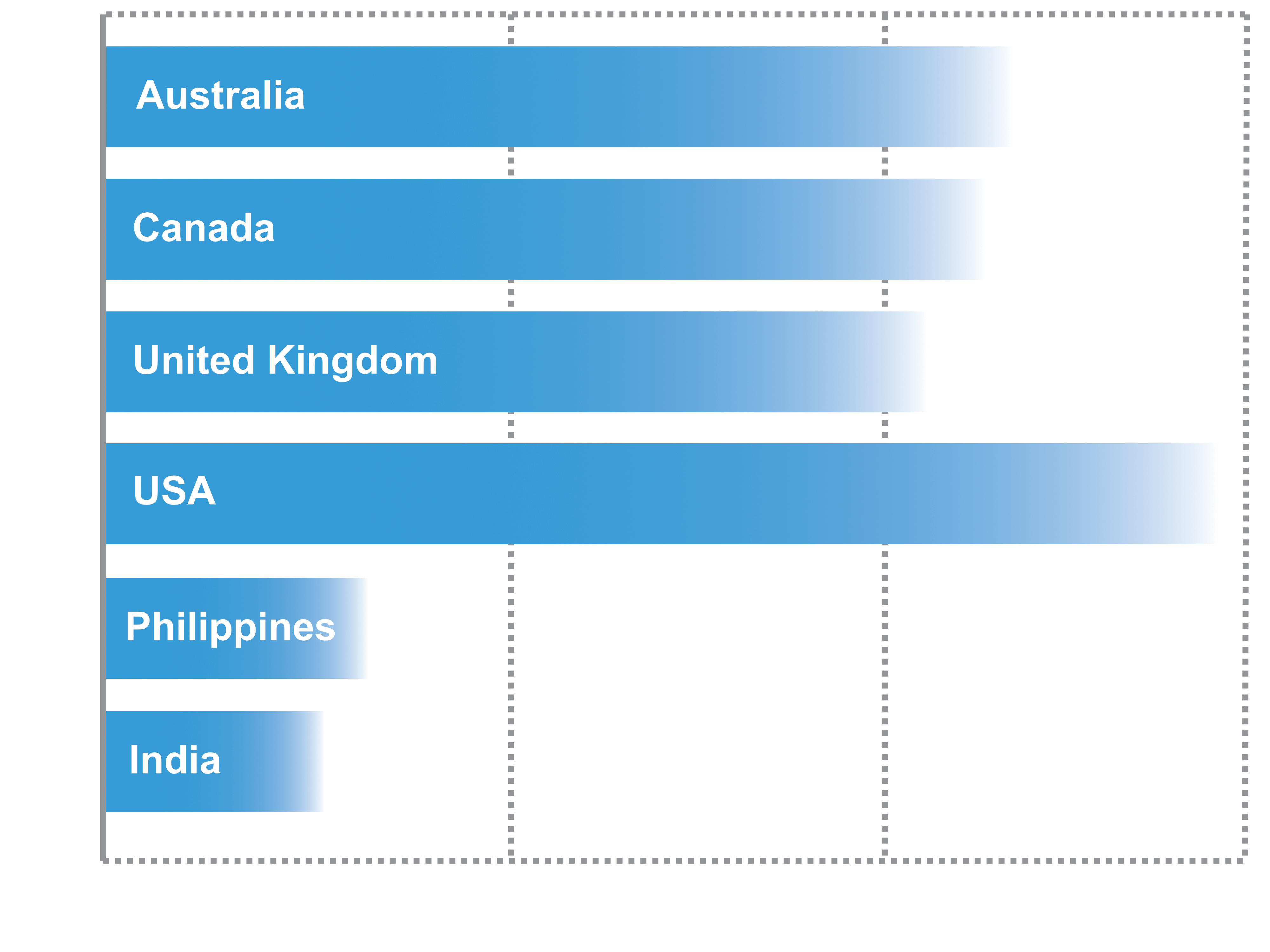
What is Offshoring?
Offshoring refers to relocating specific business operations to another country. This strategy is typically used to cut labor costs, access new markets, or take advantage of specialized skills not readily available in your home country. Offshoring can apply to various departments such as manufacturing, IT, and customer service.
What is Outsourcing?
Outsourcing involves contracting third-party companies, either locally or globally, to handle specific tasks or functions. It allows businesses to delegate non-core activities like payroll, customer service, or IT support to external providers who specialize in those areas.
Offshoring vs. Outsourcing: The Similarities
Cost Savings
Both strategies are commonly employed to reduce operational costs. Offshoring achieves this through lower labor costs in other countries, while outsourcing allows businesses to avoid maintaining in-house teams.
Efficiency Gains
Offshoring and outsourcing can increase operational efficiency by delegating tasks to specialized entities, whether it’s a foreign subsidiary or an external provider.
Access to Expertise
Offshoring provides access to international talent pools, while outsourcing offers the ability to work with specialized service providers who have in-depth knowledge in their respective fields.
Focus on Core Competencies
Both approaches enable businesses to focus on their core operations by offloading non-essential tasks, whether it’s through an offshore operation or a domestic outsourcing partner.
Offshoring vs. Outsourcing: Key Differences
Geographical Focus
Offshoring involves moving tasks to a different country, whereas outsourcing can be local or international.
Control and Integration
While offshoring involves moving tasks to a different country, outsourcing can be local or international.
Cost Structure
Offshoring typically incurs higher initial setup costs due to infrastructure and logistics, while outsourcing offers more flexibility with fewer upfront expenses.
Offshoring vs Outsourcing: Which is Right for Your Business?
The choice between offshoring and outsourcing depends on your business's specific needs, objectives, and risk tolerance. If you need to reduce costs and access specialized talent on a global scale, offshoring might be the way to go. On the other hand, if you're looking to streamline operations and focus on your core business, outsourcing certain functions may be more effective.
Factors to Consider:
Budget
Offshoring can provide greater long-term savings but requires more upfront investment, while outsourcing offers immediate cost benefits.
Control
If maintaining control over operations is crucial, offshoring may provide better oversight, whereas outsourcing places more responsibility on the third party.
Flexibility
Outsourcing offers greater flexibility, particularly for businesses that need to scale services based on fluctuating demand.

Conclusion
Both offshoring and outsourcing have their own set of advantages and challenges. Deciding which strategy is best for your business requires a thorough assessment of your goals, budget, and operational needs. While offshoring provides greater control and access to global talent, outsourcing offers cost efficiency and operational flexibility. Carefully evaluate these options to ensure they align with your long-term business strategy.
Compute potential savings for your remote staff and virtual team member
Build Your Global Team and Save up to 70% on Labor Cost.
Recent Articles
About Outsource Calculator
Outsource Calculator helps boost your profits, increases quality and efficiency, and allows your business to scale quickly without expensive overhead.
Empowering
Get a FREE Quote & Save 70% on Labor costs!
The Outsource Calculator estimates the savings from outsourced staffing solutions compared to hiring locally, which is intended for informational purposes only. It provides approximate pricing only may not be accurate and should only be used as a guide and is not an official quote. You should not make any decisions based simply on the information provided. Outsource Calculator pricing is based on the typical employee salaries for each role, including all employee payroll taxes, government-mandated employee costs, employee technology required, office space, hardware costs, IT support, recruiting, training, onboarding, and all HR functions which provide a more accurate comparison with the outsourced staffing compared to local hiring.
United States
United Kingdom
Australia
Canada
Europe
Copyright © 2025 OutsourceCalculator.com All rights reserved. Privacy Policy Terms of Use




